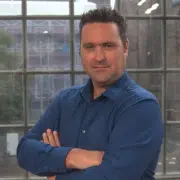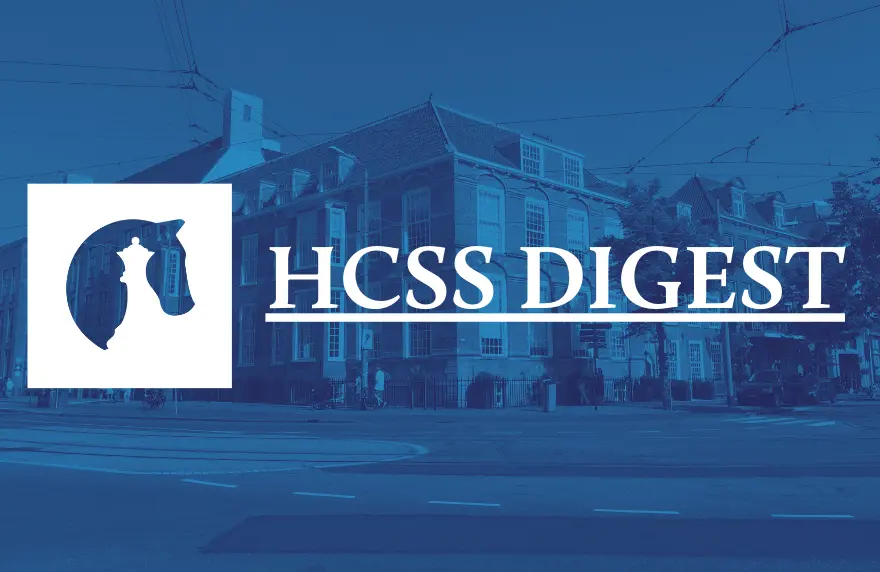Can strategic autonomy strengthen EU’s position and the transatlantic alliance? Why is climate change a national security threat? And what must Europe do in the “New Great Game” to secure its access to critical minerals? Find out in your new HCSS Digest!
Forum: The Future of European Strategy
Publication alert! Check out our new forum on “The Future of European Strategy in a Changing Geopolitical Environment: Challenges and Prospects” edited by Dr. Michiel Foulon (Center for Security Studies, ETH Zürich) and Dr. Jack Thompson (HCSS).
Over four weeks, thirteen scholars address key challenges for European strategy as it responds to a changing geopolitical environment. Their essays address areas like defense, trade, international norms, energy diversification, & relations with other major powers.
- Can strategic autonomy strengthen EU’s position and the transatlantic alliance? How to use all statecraft tools like economic, defence & cyber? Should the EU pursue influence via material and/or normative power? Foulon and Thompson kick off the Forum in their introduction essay.
- Prof. Dr. Shaun Breslin (University of Warwick) argues we need new vocabulary to describe the international system and Europe’s role within it, especially its relationship with China. We should stop using the Cold War lexicon because terms like bipolarity don’t capture the complexity of the new geopolitical landscape.
- Prof. Barry Posen (MIT Political Science) argues the US needs a different kind of strategic relationship with Europe in which Europe assumes primary responsibility for its own defense. Europe being able to protect itself from Russia would free US resources, not least for competition with China.
- Dr. Max Smeets (Center for Security Studies (CSS) at ETH Zurich) argues when it comes to offensive cyber capabilities NATO allies are increasingly diverging. As a remedy a NATO MOU should be drafted to enhance cooperation and to improve the effectiveness of disrupting and deterring adversaries’ operations in cyberspace.
- Dr Monika Sus (Polish Academy of Sciences) argues if the EU Strategic Compass is to rectify some of the 2016 EU Global Strategy’s deficiencies, the Strategic Compass must meet three requirements: inclusivity, integration, and implementation.
- Dr Daniel Fiott (EU Institute for Security Studies) argues European leaders must reconsider how to manage crises in the various (non-)traditional security domains. And that Europe must “assume more of a role for its own territorial security.”
- Dr Brian G. Carlson (Center for Security Studies, ETH Zürich) discusses how recent events regarding Russia raise alarm bells for European security. These pressing security challenges for Europe will remain, while the US’s role in Europe’s defense changes.
In the coming weeks, look for more essays on Strategy, Defence and Economics, by Sven Biscop (Egmont Royal Institute for International Relations & Ghent University), Trineke Palm (Netherlands Defence Academy), Paul van Hooft (HCSS), David Criekemans (University of Antwerp), Michiel Foulon, Jack Thompson and Henrik Larsen (Center for Security Studies, ETH Zürich).
Climate Change: The Greatest Challenge of this Century
Climate change is an urgent security threat. It increases structural vulnerabilities and the risk of conflict within and between states. In this Studio HCSS video, strategic analyst Dorith Kool explains all about climate-security risks and why it needs to be taken seriously.
The IPCC climate report comes as no surprise to General Tom Middendorp, former Chief of Defence of the Armed forces of the Netherlands and current president of the International Military Council on Climate and Security. “Climate change is arguably the greatest challenge of this century,” he states in an interview on the Ministry of Defense website, “and the consequences are clearly noticeable within Defense as well.”
Dealing with the effects of climate change will become a key area of military involvement, security experts agree. A report by the International Military Council on Climate and Security concludes that the global governance system isn’t prepared for many of the risks, reports DefenseOne.
The New Great Game
The energy transition will require a 400% increase in demand for critical minerals to meet green energy demands. This has set in motion a “New Great Game” to secure critical minerals for the energy transition, Guest Author Jeff Amrish Ritoe writes in a new paper.
What must Europe do in this “New Great Game” to secure its access to critical minerals? In a short interview for Studio HCSS, Guest Author Jeff Amrish Ritoe explains all to HCSS Deputy Director Michel Rademaker.
Opinion & Events
The Mars and Mercury Association, in collaboration with KVBK, HCSS and the Royal Netherlands Army, is organizing the third Mars and Mercury symposium on 3 November: “Battle for Europe <> Battlefield Europe”. Various experts, among them Rob de Wijk, will be speaking on the geopolitical position and role of Europe, and the risks and threats the continent faces in the ‘permanent competition’ between states.
The commercial Space Race has completely lifted off. Several European countries recognize and act upon the threats and opportunities of space. But in the Netherlands, Strategic Analyst Patrick Bolder writes in a new column, we’re still contemplating a military space policy that has been watered down to a ‘Space Agenda’.
There is nothing wrong with globalization. But the process that the Netherlands and Europe have been going through since WW2 is something completely different: Americanization. We are addicted to the USA, claims Data Scientist Paul Verhagen in a tantalizing opinion piece for EWPodium.





